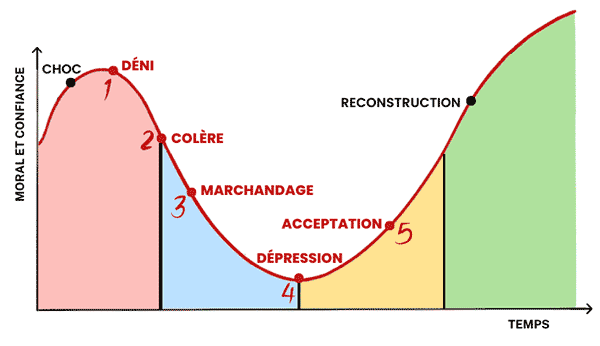
The time change will take place on the night of Saturday 24 October to Sunday 25 October. A practice that sometimes sounds like a test for some and which would have consequences on our body.
The time change has an impact on health
For 45 years, the French have been used to changing time for winter or summer. At 3 am, we will therefore have to set the clock back to 2 am, so we gain 1 hour of sleep! But this time change is the penultimate because the European Parliament voted to end this practice. The French will therefore stick to summer time from 2021.
This change of time disrupts our rhythm and is even an ordeal for many of us. Indeed, if we gain an hour of sleep, we lose it to the detriment of the sun and natural light, which causes a shift in our morale. Dr Sylvie Royant-Parola, sleep specialist and president of the Morphée Network, indicates that “ our biological clock quickly finds itself disrupted in the face of this lag “. The biological clock, which is located in our brain, allows us to program our body through day and night: “This is called the circadian cycle, our organism is organized in relation to time and to the external light. And when we change the frame of reference, the body will undergo modifications. We go from a 24 hour day to a 25 hour day, which implies that we do not behave in the same way »Explains Dr Royant-Parola.
A history of biological clock
The internal clock also takes care of the secretion of melatonin or “sleep hormone », Which promotes sleep and allows us to have temporal benchmarks. This change therefore causes problems with falling asleep, attention, appetite, mood and a decrease in working capacity: “Winter time is still preferable to summer time, because it is the physiological time that is closest to solar time, and it is therefore easier for the body to adapt to it. When daylight saving time changes, children, especially the little ones, find it very difficult to go to bed because it is still daylight. The morning people will be the most impacted, as they will feel more tired from having to stay awake an hour longer.“. But the good news is, you just have to “3-4 days for the body to get used to the new time“.
The schedule change also has important consequences for the most vulnerable. On the one hand, the lack of natural light would lead to the appearance of seasonal depression, present in 15% of the population at this time of year. Sleep disorders and problems falling asleep are also believed to increase the number of traffic accidents. According to a 2016 American College of Cardilogy study in Washington, heart attacks increase by 25% on the Monday after the daylight saving time. At last, “for children and the elderly, their body is more fragile, they have more difficulty getting used to the disturbances of their biological clock. Fortunately, the time change this weekend happens during school holidays when the hours are more free“.












